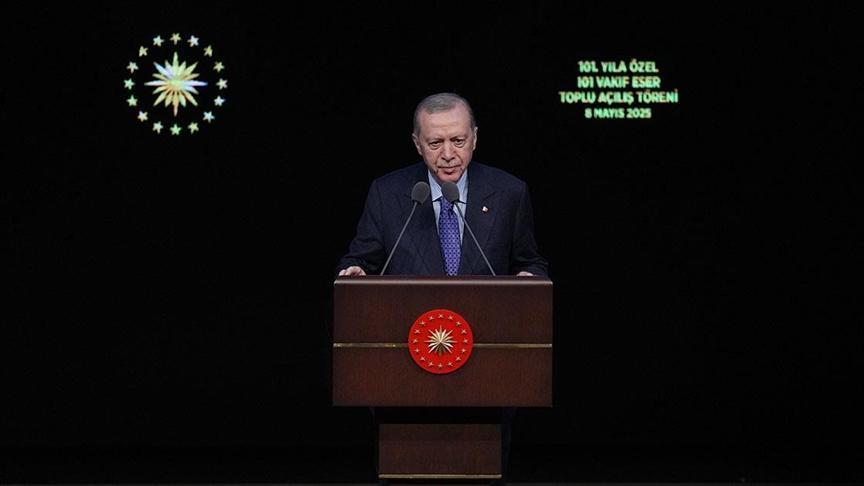
President Recep Tayyip Erdoğan has called for the removal of obstacles to marriage as part of a broader campaign to bolster family values and reverse Türkiye's declining birth rate.
"We never find it right to make marriage difficult," Erdoğan said on May 8 during an event at the presidential complex in Ankara.
During the gathering, he detailed initiatives introduced under the “family year” declaration for 2025.
"Marriage should be made easier, encouraged and obstacles to marriage should be removed," he said. "We need to give importance and priority to this issue."
The president praised foundations that provide wedding and dowry support to young couples. He also vowed to counteract what he described as "wrong perceptions and habits in society due to the influence of digital media."
The "family year" initiative aims to address Türkiye’s plummeting fertility rate, which fell to 1.51 in 2023 — well below the replacement level of 2.1 needed to sustain population levels without external growth.
Authorities express concern over the trend, which has persisted since 2016, and have launched wide-ranging efforts to reverse it.
As part of the campaign, the Family and Social Services Ministry unveiled a new logo featuring a mother, father and three children beneath the Turkish flag. Throughout 2025, state institutions will coordinate nationwide events designed to highlight the significance of the family structure.
Among the key policy tools is the newly established Family and Youth Fund, which offers interest-free marriage loans of 150,000 Turkish Liras (around $3,900) to eligible young couples. The loans include a two-year grace period followed by a four-year repayment term.
A six-member board — chaired by a deputy treasury and finance minister and including deputy ministers from the family, youth, energy and industry ministries — oversees the fund. The board is responsible for approving projects, allocating funds and managing spending programs, with decisions made by majority vote.
The government has also set up a population policies board to study and address demographic challenges, including the country's aging population and shrinking youth base.
By the end of 2024, Türkiye's population stood at 85.6 million, with more than 21.8 million of them aged between 0-17, the age group classified as children by the United Nations.
While children once made up nearly half the country’s population in the 1970s, their share has gradually declined over the decades, falling to 41.8 percent in 1990 and to just over a quarter in 2024.
Though projections suggest this trend will continue, Türkiye’s child population share remains well above the European Union average of 17.8 percent.